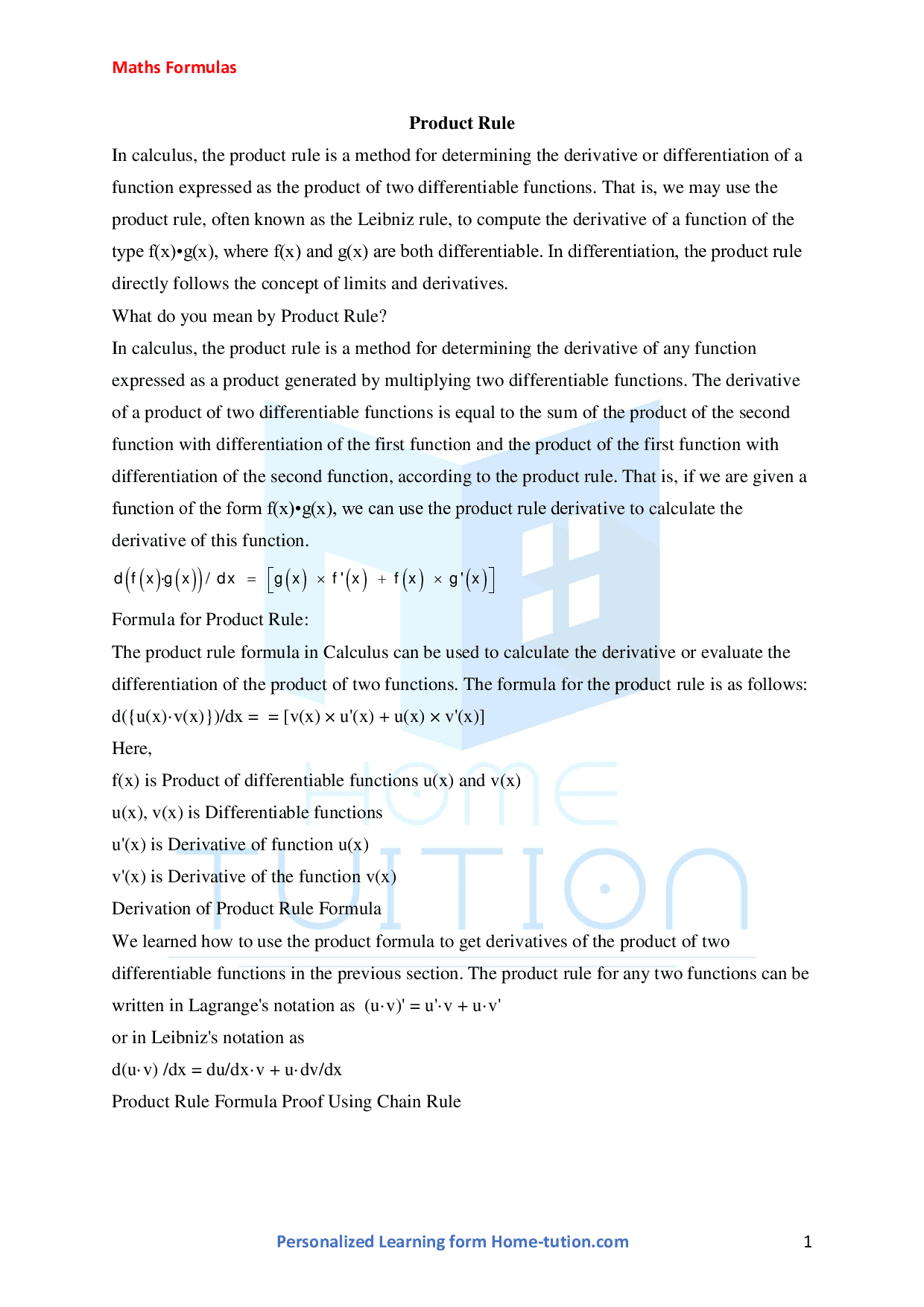About Product Rule
In calculus, the product rule is a method for determining the derivative or differentiation of a function expressed as the product of two differentiable functions. That is, we may use the product rule, often known as the Leibniz rule, to compute the derivative of a function of type f(x)•g(x), where f(x) and g(x) are both differentiable. In differentiation, the product rule directly follows the concept of limits and derivatives.
What do you mean by Product Rule?
In calculus, the product rule is a method for determining the derivative of any function expressed as a product generated by multiplying two differentiable functions. The derivative of a product of two differentiable functions is equal to the sum of the product of the second function with differentiation of the first function and the product of the first function with differentiation of the second function, according to the product rule. That is, if we are given a function of form f(x)•g(x), we can use the product rule derivative to calculate the derivative of this function.
d(f(x).g(x))/dx = [g(x) x f'(x) + f(x) x g'(x)]
The formula for Product Rule:
The product rule formula in Calculus can be used to calculate the derivative or evaluate the differentiation of the product of two functions. The formula for the product rule is as follows:
- d({u(x)·v(x)})/dx = = [v(x) × u'(x) + u(x) × v'(x)]
- Here,
- f(x) is Product of differentiable functions u(x) and v(x)
- u(x), v(x) is Differentiable functions
- u'(x) is the Derivative of the function u(x)
- v'(x) is Derivative of the function v(x)
Derivation of Product Rule Formula
- We learned how to use the product formula to get derivatives of the product of two differentiable functions in the previous section. The product rule for any two functions can be written in Lagrange's notation as (u·v)' = u'·v + u·v'
- or in Leibniz's notation as
- d(u·v) /dx = du/dx·v + u·dv/dx
Product Rule Formula Proof Using Chain Rule
By taking the product rule as a specific case of the chain rule, we can get the product rule formula in calculus using the chain rule formula. Assume that f(x) is a differentiable function. h(x) = f(x)·g(x).
- d(f·g) /dx = [δ(fg)/δf][df/dx] + [δ(fg)/δg][dg/dx] = g(df/dx) + f(dg/dx)
- Hence, proved.
Product Rule for multiplication of More Than Two Functions
- Using the same product rule formula, the product rule can be generalised to products with more than two elements. For example, the product of three functions u(x), v(x), and w(x) is u(x)v(x)w(x).
- d(uvw)/dx = {du/dx}(vw)+u {dv/dx} w+(uv){dw/dx}{d(uvw)/dx}
- = {du/dx}(vw)+u{dv/dx}w+(uv){dw/dx}

